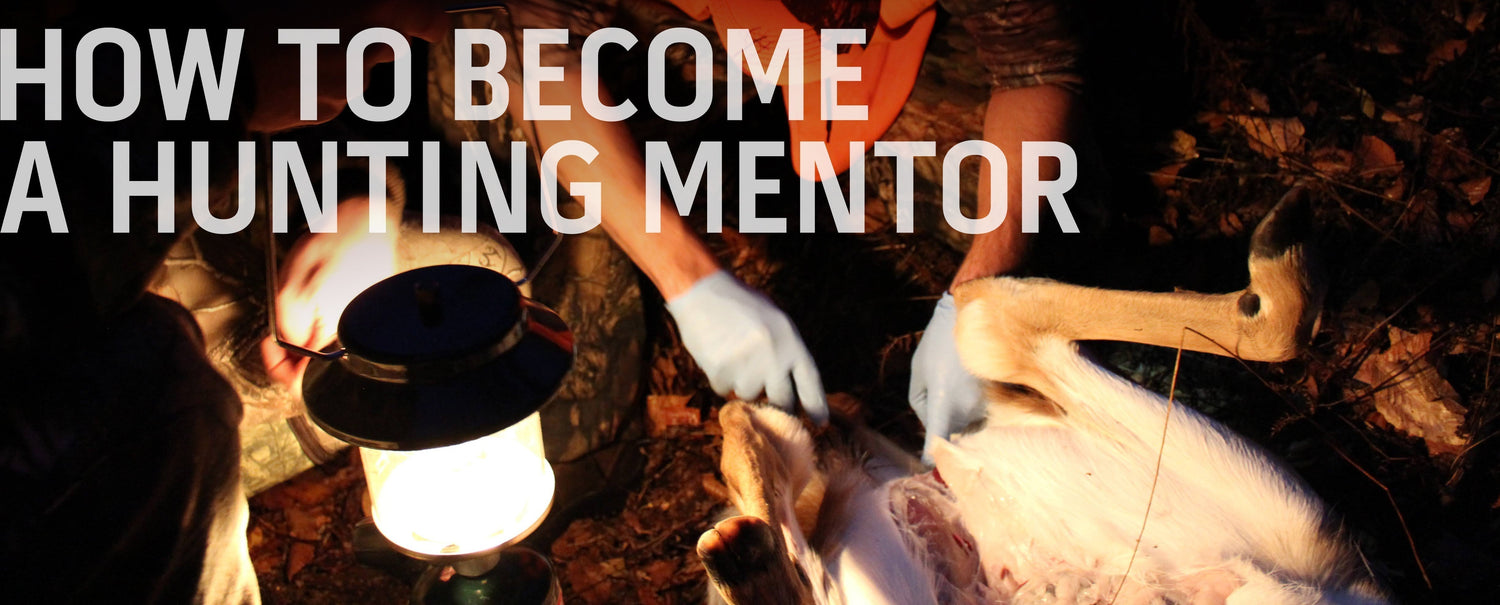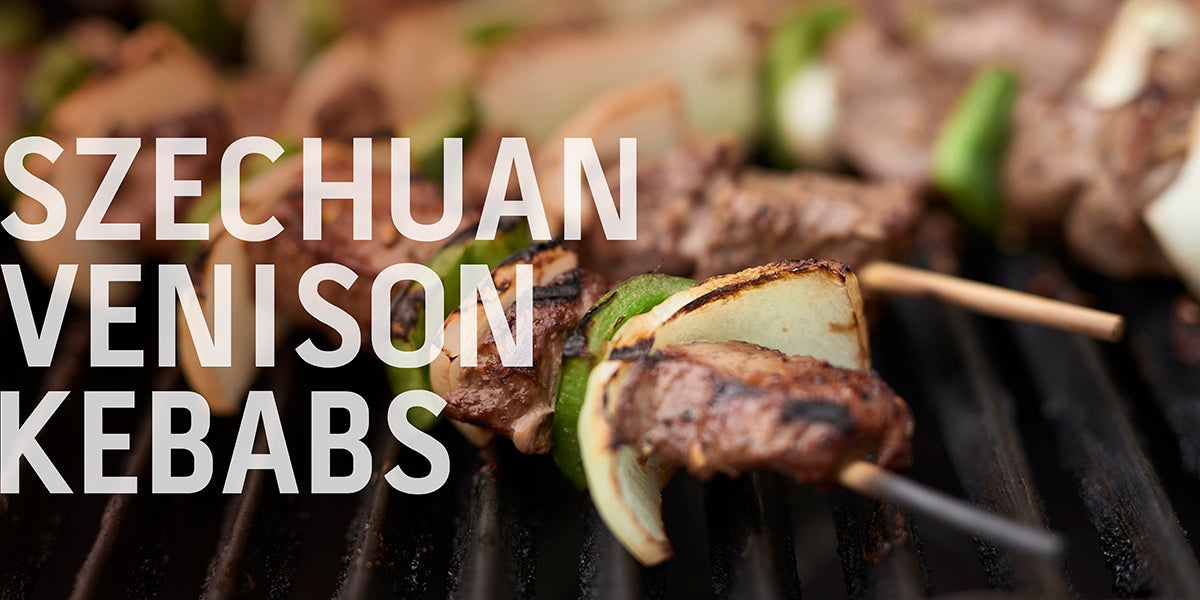
This week's insight brought to you by:
Kory Slye
I distinctly remember going squirrel hunting for the first time with my Dad when I was 12 years-old. It was on a cool evening during Pennsylvania’s archery season. My Dad set aside his opportunities at harvesting a buck so that I could get a chance at a few squirrels. I remember taking two gray and one red squirrel that evening, the memories are still fresh in my mind. But that memorable evening with my Dad in the woods wouldn’t have happened if he wasn’t willing to allow me to have fun as a young hunter.
Sometimes we, as hunters, are too serious, and focus too much on getting that buck that we’ve been watching on the trail cameras. Instead, we need to give young hunters the chance to have fun while hunting. This is important if we want them to continue on their journey and grow as hunters and to reverse the trend of declining hunter numbers.

A miserable experience can easily lead to the untimely end of an emerging hunting career. My experiences are with taking my own kids hunting, they are young and my perspective reflects that much. But many of these tactics can work for older children, as well as adult onset hunters.
Start as Soon and as Often as Possible
The more you are able to involve the young hunters in all aspects of hunting the better. I try to include my kids in as much as possible, so they get the full experience. It doesn’t have to and shouldn’t just be the sitting-still-and-be-quiet part of the hunting equation. I have taken my kids on scouting trips before they were old enough to walk. They have helped check on and set up a tree stands and trail cameras. They have been to the rifle range with me to take part in the yearly sighting-in process before the rifle season opener. We enjoy going to 3D archery shoots together in preparation for archery season. We have gone on short hunts for both big and small game, some successful, some not so much. They have helped me butcher and process animals after a successful hunt. And they enjoy helping me cook the wild game. All of these build upon each other, creating a strong foundation for a growing hunter. This foundation is important in order to create a successful and respectful lifelong hunter.
Involving them in the entire process from preparing for the hunt, to the actual hunt, and especially after the shot gives them a sense of ownership, involvement, and contribution. My daughter’s eyes will light up when I tell her I got a doe from the tree stand she helped me put up. My son, who is a notoriously picky eater, will devour his meal when I tell him it’s from the venison we cut up and put through the meat grinder together. No matter how small or trivial it seems, involve them in every step of the process.
This same principle applies when mentoring an adult onset hunter. Involving them in every step of the process gives them the confidence to start trying it on their own. There are no mistakes, only learning opportunities.
Planning for a Child/New Hunter Friendly Hunt
There are many elements to consider when planning to take a new hunter out for the first time. What wild game to pursue, where to go, and how to prepare are aspects that need to be carefully considered and determined. Expectations have to be kept in check, and above all else, have patience to avoid getting frustrated. You are taking them hunting to help them experience the wild and not just for your own benefit.
Small game is the perfect opportunity to introduce new hunters to the sport. In my area that means squirrel hunting. Game is abundant, season lengths are long, and opportunities can happen often. With squirrel hunting, being still and quiet is not as important as other types of hunting. The ability to be up and moving while searching the tree tops for bushy tails will keep young hunters active, attentive, and focused on the hunt.

Hunting is a communal activity and being able to share a hunt with close friends helps create lasting memories that will be cherished for a lifetime. Each year, we plan a group squirrel hunt with several friends and their children, who are similar in age to my kids. After the hunt we always have a big meal where the parents can sit and talk, and the kids are able to play together. It’s a weekend that everyone enjoys and looks forward to each year. Planning a hunt with friends and family is a great way to introduce new hunters. It is a tradition that the new hunter will love and anticipate each year.
The Hunt
Before stepping foot in the woods safety must be emphasized. If the new hunter is carrying the rifle or shotgun, go over the main rules of firearms safety; treat the gun as if it’s always loaded, never point it at anything you do not intend to shoot, keep your finger off the trigger until you are ready to shoot, and be sure of your target and what’s beyond it. Lead by example, not only for firearm safety but for hunting ethics in general as well. Show them that hunters are stewards of the land and wildlife. Hunters never take more than what is responsible, hunters respect landowners and their property, and hunters always respect the harvested animal. Be the best example you know how to be.

When hunting with children, there will come a time when they are done, ready to pack it up and go home and could not care less about hunting at that moment. This seems to almost always come at the worst possible time. This is a pivotal moment for both the mentor and mentee, a moment that requires an immense amount of patience and understanding. There is a fine line between pushing a young hunter out of their comfort zone for the better and going too far, potentially souring their desire to hunt altogether. Sometimes, it is better to give up on one day of hunting than to push them to a point where they don’t enjoying hunting at all. Instead, use this time to go for a hike or collect leaves, and spend time with them.
For an adult onset hunter, it is important to push them out of their comfort zone. Successful hunters are the ones that are willing to sit from sun-up to sundown in the stand, or hike that extra mile into the backcountry. Success is earned, show them how to earn it. But remember, success is not just measured by the number of animals killed, it is the experiences of the wild and the memories made while hunting.
After the Shot
I have taken each of my children squirrel hunting over the last several seasons and they each have witnessed me shoot and kill multiple squirrels. Their reactions are similar each time, happy that we were successful on our hunt, with a hint of sadness. However, each young hunter is going to react differently, so be prepared for an emotional response, especially if it’s a child’s first harvest. It is important to be understanding of their emotions, shaming them will only have negative consequences. They are allowed to feel sadness in this moment. Use this moment for a time of reflection and gratitude. Use this moment to explain why we hunt. We hunt to feed our family, to spend time in the outdoors together, and to contribute to conservation. Emphasize the importance of respecting the harvested animal by fully utilizing it.
Field dressing and processing an animal is an opportunity to teach the new hunter about the animal that was harvested. Not only how to do the act of field dressing and processing it, but the anatomy of the animal. New hunters are full of questions, satisfy their curiosity and involve them in the entire process. From field dressing to preparing that first meal of fresh wild game, celebrate the hunt and the animal with them.

There will be times that are extraordinarily frustrating, where you ask yourself is it really worth the trouble. The short and simple answer is; absolutely. When you find yourself overwhelmed and exasperated just take a step back, remind yourself why you are doing this and don’t be so serious. Getting that big buck or limit of cottontails is not worth jeopardizing your relationship with a new hunter and their experiences with hunting.
Going hunting is more than just shooting an animal, it’s an experience that should be shared with our children and friends. It is how we can continue our traditions, share our love for the wild, and forge our bonds with friends and family. The memories made while hunting will be permanently etched in our minds and theirs. These memories will be shared around campfires, kitchen tables, and hunting camps for years to come. You won’t realize it at the time, but the days hunting with young hunters will be the good ol’ days to be remembered with fond nostalgia.
Looking for some inspiring recipes to try out? Here are a few of Kory’s go to recipes that are great for any occasion.
https://harvestingnature.com/2021/07/19/venison-pizza-rolls/
https://harvestingnature.com/2021/07/08/venison-pastrami/
https://harvestingnature.com/2021/01/18/cheesy-venison-and-shells/
https://harvestingnature.com/2020/04/13/venison-and-black-bean-chili-with-cornbread-waffles/
https://harvestingnature.com/2020/04/03/venison-rolled-tacos-taquitos/
https://harvestingnature.com/2020/03/23/antelope-steak-fingers/





Leave a comment
This site is protected by hCaptcha and the hCaptcha Privacy Policy and Terms of Service apply.